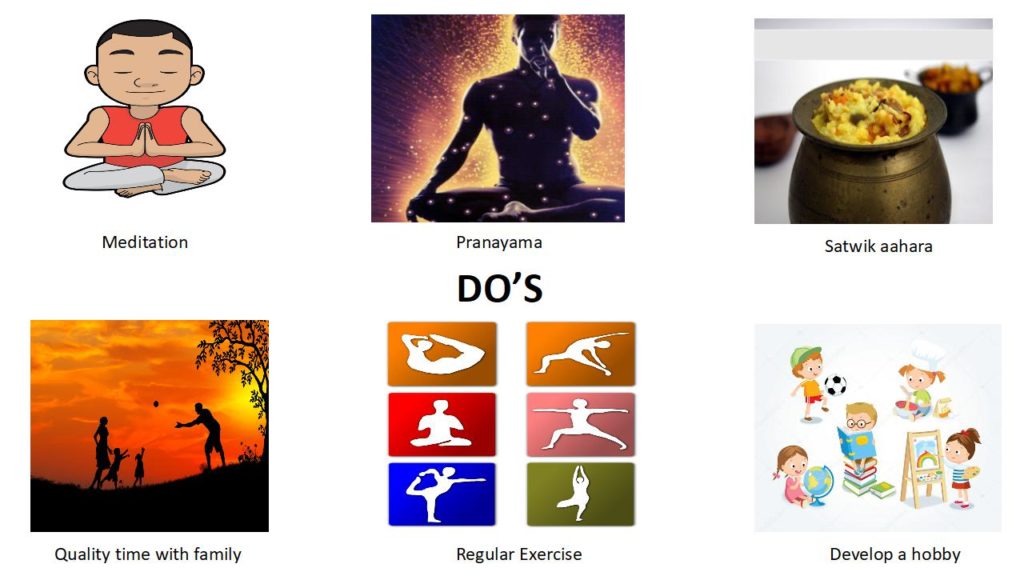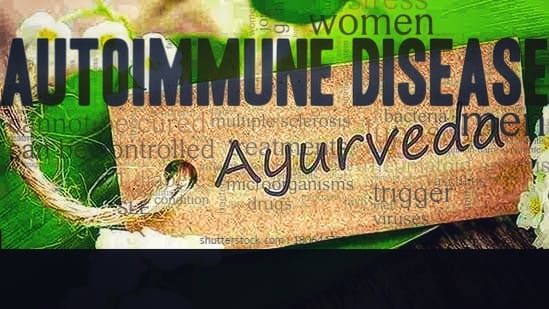Dear readers,
The growing problem of developed as well as developing countries today is obesity. Obesity is not only serious health problem but it is equally serious psychological and socioeconomic problem as well. Need of the hour is to pay attention to it in time as obesity is declared as an epidemic by WHO.
As we all know there are many reasons contributing to obesity, the important ones are lack of healthy lifestyle (sedentary work/lack of exercise/ changed sleep pattern), unhealthy diet (excess fatty n sugary food, increased intake of preserved & processed food, irregular food timings), heredity and stress.
Today we are going to see contribution of stress in obesity according to Ayurveda and conventional medicine.
conventional medicine perspective:
Stress shows effects either in the form of anxiety or depression or sleep disorders.
Stress interferes in two hormone activities; they are serotonin and cortisol.
Serotonin: it is a feel-good hormone. Naturally when you are stressed out, your basic need is to feel good irrespective of what’s happening around or within your mind. Usually, excess carbohydrate intake increases serotonin levels in the body and you feel good. In order to eat carbohydrate, you eat easily available options around like potato chips/ French fries, canned food, candies, bread, pastries, fried snacks. These items are usually combined with excess sugar or fats. This leads to fat accumulation and ultimately obesity.
Cortisol: It is one of the important hormones. It is a steroid hormone and released in excess in response to stress. It plays important role in storage of fat and use of energy in the body. No wonder it is essential in regulating metabolism, immune response and blood sugar level in the body along with other important functions. Increased levels of cortisol increase appetite (craving for fatty and sugary food) and also boosts fat storage, this leads to obesity. Frequent cravings make you eat frequently, this disturbs digestion and ultimately metabolism.
Neuropeptide Y-(NPY): It is a 36 amino acid molecule released by nerve cells of central & peripheral nervous system during stress. Its functions include many physiological & hormonal activities. The important function apart from these is, regulation of appetite and feeding behavior. It encourages fat accumulation as it stimulates food intake especially that of carbohydrates. High fat and high sugar intake increase release of NPY. This leads to increased fat accumulation in the body and ultimately obesity.
It is a vicious cycle that becomes difficult to break.

Ayurvedic perspective:
Ayurveda considers role of Agni (metabolic &/ hormone activities) very important in occurrence of
any disease. Ayurveda describes obesity as sthaulya or medoroga. It is considered as a metabolic
disease (aam janit vyadhi) and described in ashtaunindita purusha i.e. 8 undesirable physiques
(charak sootrasthana) . It is defined as-
मेदोमांसातिवृद्धत्वात् चल स्फिक् उदर स्तन:|
अयाथोपचय उत्साहो नरो अतिस्थूल उच्यते|| (योगरत्नाकर, मेदोरोग चि. ७)
It means a person having excess accumulation of meda dhatu(fat) and mamsa dhatu (flesh, muscle) causing flabbiness of hips, abdomen and breasts predominantly, along with overall weight gain is considered as atisthoola (obese).
Here we are thinking of obesity as a result of stress in the eyes of Ayurveda. So let us check out – Ayurvedic pathogenesis of stress induced obesity.
Nidan (cause): ati vichar (over thinking), bhaya (fear), ati krodh (excess anger), chinta (worry), nitya harsh (uncontrolled emotions), irregular sleep habits, negativity towards life etc
तदतिस्थौल्यम् अतिसम्पूरणात् गुरू मधुर-शीत स्निग्धोपयोगात् अव्यायामात् अव्यवायात् दिवास्वप्नात् हर्षनित्यत्वात् अचिन्तनात् बीजस्वभावात् च उपजायते| (च.सू. २१/४)
Samprapti:

Ayurveda has always emphasized on mental health while describing complete health.
Today’s youngsters are facing following possible problems which contribute to stressful life-
- Lack of healthy family time
- Peer pressure to perform always well
- Too much demanding nature as many are single child or have only one sibling. This leads to less adjustable nature resulting in easy panic/ frustrations.
- Lack of communication between youngsters and elderly people in home due to too busy schedule of kids.
- strangled relationship of parents
- Constant comparison at home/school or college.
- Starving for perfection or extremely negligent
- Lack of sharing one’s real feelings
- Negligence towards emotions
- Uncontrolled use of gadgets
Even the elders feel lots of pressure to cope up with family and professional life, responsibilities and strangled relations, hatred, unhealthy competition. Health problems, loneliness, feeling unwanted, lack of importance in family can be some issues contributing to grandparents’ stress.
This list can grow further. Main motive of this blog is to create awareness among teens that career, earning money, recognition is just a part of life and not the whole life. You deserve to be happy, contented and cheerful. Do not get drained because of false expectations from self & others. Learn to stay calm. Learn to respond instead of reacting. You have n number of food items available to satisfy your false cravings, but unhealthy diet along with unhealthy mind is going to help you put on excess weight. Obesity plays big role in cosmetic value today. It impacts directly on your confidence, mind stability and health. Better prevent it than to treat.
Treatment:
Both mind and body need to treated. But in stress induced obesity, priority is given to treating mind.

Always consult an ayurvedic physician before starting any medicine/ therapy for obesity. Every
person has different needs that has to be analyzed properly before starting any therapy or
medicine.
So, stay focused on what you eat and how you feel to stay away from obesity. Good luck.

…………………………………………………………………………………………………………………………………………………………………………………………………………












Thank you mam for giving valuable information about the relationship between stress and food which leads to obesity.
Sorry by mistake I have clicked on first star.
Thank you Doctor, for sharing such an interesting information in simple language.
Thank you Doctor for sharing such a great information